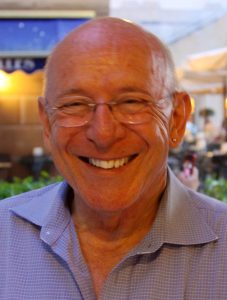John Nádas
Gerhard L. Weinberg Distinguished Professor Emeritus
 John Nádas (Gerhard L. Weinberg Distinguished Professor Emeritus in the College of Arts and Sciences) was born in Caracas, Venezuela, and after the age of 7 grew up in New Orleans, LA. He received a B.F.A. in music from Tulane University in 1968; a year of graduate studies at Yale University (then interrupted by war); an M.A. in musicology from Villa Schifanoia (Florence, Italy) in 1975; and a Ph.D. in musicology from New York University in 1985 (Dissertation: “The Transmission of Trecento Secular Polyphony: Manuscript Production and Scribal Practices in Italy at the End of the Middle Ages,” under the direction of Edward Roesner).
John Nádas (Gerhard L. Weinberg Distinguished Professor Emeritus in the College of Arts and Sciences) was born in Caracas, Venezuela, and after the age of 7 grew up in New Orleans, LA. He received a B.F.A. in music from Tulane University in 1968; a year of graduate studies at Yale University (then interrupted by war); an M.A. in musicology from Villa Schifanoia (Florence, Italy) in 1975; and a Ph.D. in musicology from New York University in 1985 (Dissertation: “The Transmission of Trecento Secular Polyphony: Manuscript Production and Scribal Practices in Italy at the End of the Middle Ages,” under the direction of Edward Roesner).
He taught at the University of California at Santa Barbara in 1982-83 before joining the faculty of the University of North Carolina at Chapel Hill. He has been a fellow of Villa ITatti, the Harvard Center for Italian Renaissance Studies (Florence, Italy, 1987-88). He was a Visiting Professor at Harvard University during fall 1998. Professor Nádas was Editor-in-Chief of the Journal of Musicology (2000-2008) and is a member of the editorial boards of the series Late Medieval and Early Renaissance Music in Facsimile (The University of Chicago Press), the Italian journal Recercare, and the series “Ars Nova: Collana di Studi e Riproduzioni Fotografiche delle Fonti Italiane del Tre-Quattrocento” (Lucca: Libreria Musicale Italiana).
His numerous documentary/source studies incorporate original archival research exploring a wide range of Italian late medieval music historical topics: sacred and secular repertories, the lives and works of individual European and especially Florentine composers, and important contributions of cultural institutions, including the Italian papal chapels. A volume of his selected collected studies was published in his honor (Arte Psallentes, 2017) by Libreria Musicale Italiana. That year he was also awarded the Nino Pirrotta Prize in musicology at Certaldo, Italy for his fundamental contributions to the study of the French and Italian musical traditions of the 14th and 15th centuries. Apart from his focus on the music of late medieval and early Renaissance France and Italy, wider scholarly interests include music in Mantova and Venice at the time of Monteverdi, and opera of 19th-century Italy.
Email: jancsi@email.unc.edu
